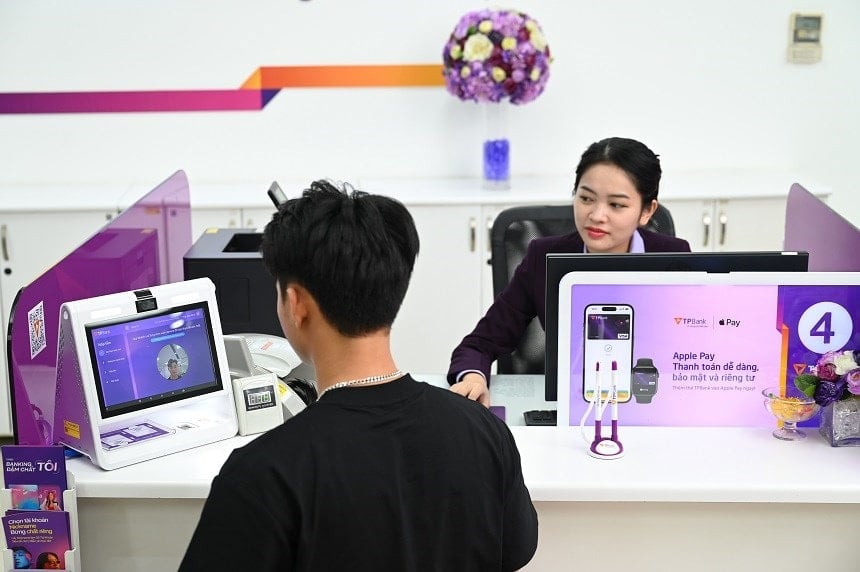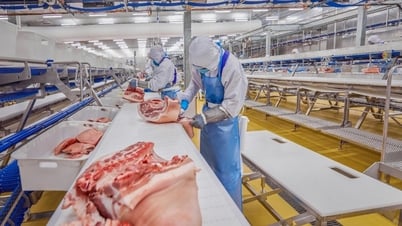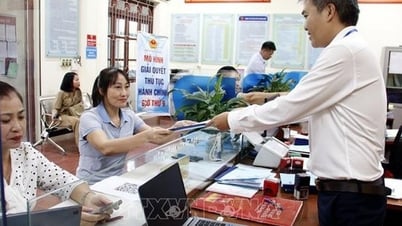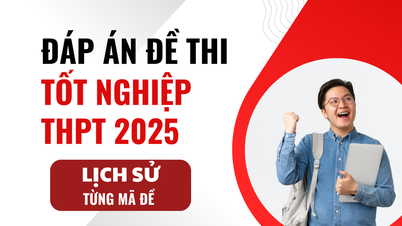Proactive defense in the digital age
Before the regulation from July 1, 2025, banks will temporarily suspend transactions with unauthenticated institutional accounts, many businesses have quickly implemented authentication steps to avoid the risk of payment interruption, which is a vital factor for business operations.
According to the State Bank of Vietnam (SBV), although the banking system has tightened the authentication of personal accounts, cybercriminals continue to "circumvent the law" and switch to corporate accounts to commit fraud. Therefore, expanding biometric authentication to businesses is considered an inevitable step in the process of strengthening trust and ensuring safety for the digital payment ecosystem.
Along with authentication, the State Bank is coordinating with commercial banks and authorities to build a centralized database of accounts with suspicious transactions, to proactively warn users early.
This is seen as part of the “soft shield” in the digital financial security landscape, where breaches are not only prevented but also detected and continuously monitored.
Most major banks such as Vietcombank, BIDV, VietinBank, ACB , Techcombank, MB, VPBank… have integrated biometric authentication features into digital banking applications. In parallel, there are a series of communication campaigns, guiding customers to perform both online and at transaction counters.
In fact, many businesses do not wait until “G hour” to take action. Mr. Tran Thanh Binh, Director of Binh Phuong Private Enterprise (Hanoi) shared that after receiving notification from the bank, he proactively authenticated on the Techcombank app, completing it in just 10 minutes.
In the case of VietinBank , due to discrepancies between the business registration information and the ID card, he went directly to the transaction office to handle it. "It didn't take much time, the staff guided the steps very specifically," he said.
However, some businesses still encounter difficulties such as: not having a chip-embedded ID card, not having an NFC device, or confusing the legal representative with the account user. In particular, FDI organizations or foreign representative offices have difficulty using passports for authentication.
A representative of a commercial bank affirmed: “Only legal representatives can directly open accounts, authorization is not accepted. This is an important security principle in risk prevention.”
By the end of April 2025, the banking system had successfully authenticated 113.5 million personal accounts and 711,000 corporate accounts, equivalent to about 66% of the total number of corporate accounts transacting electronically. For unauthenticated cases, the bank will redirect transactions to the counter as a temporary solution but will not affect production and business activities.
According to financial expert Dr. Nguyen Tri Hieu, in the context of increasingly sophisticated high-tech crimes, biometric authentication is an important step forward in bank account management towards "associating legal responsibility with personal data". This is not only a technical requirement but also a prerequisite to protect businesses from increasingly organized, cross-border fraud.
Compared to many countries, Vietnam is implementing digital account authentication at a relatively fast pace. In India, the Aadhaar program that identifies citizens using biometrics has become a platform to help trace fraudulent transactions and increase financial transparency. In South Korea, biometric authentication through digital banking platforms has become a mandatory standard since 2022.
Digital transformation in the finance and banking sector is not just about “following the trend”, but also about national security and responsibility for each currency traded in the market. To achieve this goal, it is necessary to have the support of businesses: proactively updating technology, complying with the law, and raising awareness of information security.

Is it enough to stop fraud?
Requiring businesses and individuals to authenticate biometrics when using bank accounts is not only a change in administrative procedures, but also a significant step forward in tightening identity management and enhancing transparency in financial transactions, especially in the context of increasingly sophisticated and unpredictable cybercrime.
Mr. Vu Ngoc Son, Head of Technology and International Cooperation, National Cyber Security Association (NCA), affirmed that applying biometrics to business accounts is a turning point.
Not only does it help verify users in a highly secure manner, but it also minimizes the use of "virtual" legal entities and uncontrolled corporate accounts, which are serious loopholes in the chain of fraud, money laundering, and manipulation of cross-border cash flows.
In fact, since many banks applied facial and fingerprint authentication to large-value transactions, the rate of identity fraud has decreased sharply, with some credit institutions recording a decrease of more than 40% after only half a year. This is a positive signal that biometrics is playing an effective role as a "barrier" in protecting user accounts.
However, according to Mr. Son, biometrics is not an "absolute shield". When security technology is upgraded, cybercriminals also "upgrade" their tricks. Unable to fake faces, they switch to impersonating legal entities, creating "empty" businesses, buying and selling business registration documents... to legalize bank accounts and serve the purpose of money laundering and illegal financing.
In addition to policy solutions, the banking industry is also implementing a series of technical measures to improve proactive defense capabilities: Building a database of suspicious accounts, sharing internally between banks, thereby proactively warning customers when there are transactions with accounts showing signs of abnormality. Preventing access from unsafe devices, such as jailbroken phones, devices with enabled accessibility rights, which are common attack tools for hackers.
In addition, it is necessary to strengthen technology to monitor information leaks, detect and quickly remove fake banking websites and applications that are tricking users into entering account data.
Mr. Doan Thanh Hai, Deputy Director of the Department of Information Technology - State Bank of Vietnam, emphasized: "Biometric authentication is not the destination, but the beginning of a long-term strategy to protect digital identities in the financial and banking sector."
With coordinated efforts from banks, regulators and customers, biometrics can become an effective “firewall”, but still needs to be continuously reinforced by technology, legislation and public awareness.
Source: https://baodaknong.vn/siet-chat-giao-dich-de-ngan-lua-dao-qua-tai-khoan-doanh-nghiep-256732.html




![[Photo] Cuban artists bring "party" of classic excerpts from world ballet to Vietnam](https://vphoto.vietnam.vn/thumb/1200x675/vietnam/resource/IMAGE/2025/6/26/797945d5d20b4693bc3f245e69b6142c)

























![[Photo] General Secretary To Lam receives Australian Ambassador to Vietnam Gillian Bird](https://vphoto.vietnam.vn/thumb/1200x675/vietnam/resource/IMAGE/2025/6/26/ce86495a92b4465181604bfb79f257de)





































































Comment (0)